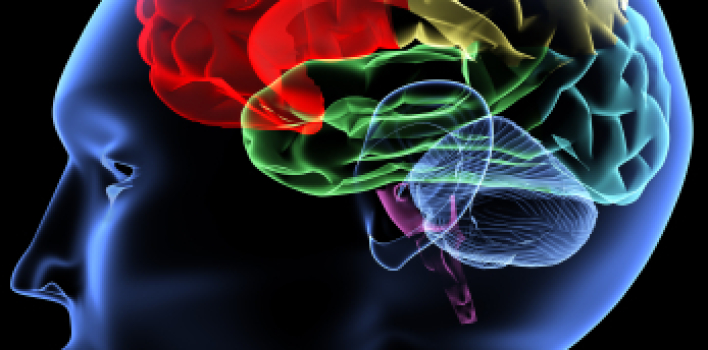Could the Mind be the Brain?
From: Maverick Philosopher
http://maverickphilosopher.typepad.com/maverick_philosopher/
Few philosophers nowadays would maintain the bald thesis that the mind is identical to the brain, but it is a view that one hears among the laity. So it is worth refuting, this being a blog that I hope is somewhat accessible to the proverbial ‘educated layman.’ (One of my motives in starting it over seven years ago was to offer free philosophy lessons, thereby doing my bit to enlighten the masses and counteract, if ever so slightly, their immersion in panem et circenses.) But note: proving that the mind cannot be identical to the brain does not amount to proving that the mind is capable of existing apart from some material embodiment or other.
So my question is this: Are mind and brain identical? To answer the question one must know what one means by ‘identity.’ I mean strict numerical sameness. Consider the sole of my boot and the print it leaves on the trail. Are boot sole and boot print identical? Well, if you permit the phrase ‘qualitatively identical,’ then they are qualitatively identical, identical in respect of at least one quality, namely, having the same shape. But they are obviously numerically distinct. Count ‘em: one, two. You could say that there is a correlation between the two. But correlation is not identity. If x and y are correlated, then they are precisely not numerically identical but numerically distinct. Correlation entails numerical distinctness.
So don’t confuse qualitative with numerical identity, and don’t confuse identity with correlation. That’s the beginning of wisdom, but only the beginning.
I now introduce a principle known in the trade as the Indiscernibility of Identicals. Stated roughly, it says that if x and y are numerically identical, then they share all properties. (A precise formulation would have to address the question as to what exactly counts as a property. Does ‘is identical to Obama’ pick out a property?) The Indiscernibility of Identicals is not only true, but necessarily true in the sense that it is impossible that x and y differ property-wise if they are numerically identical.
Given the self-evident necessary truth of the Indiscernibility of Identicals, if my mind is identical to my brain, then my mind and my brain share all properties: everything true of the one is true of the other, and vice versa. But it is clear that they do not share all properties. The brain is a physical thing with a definite mass, weight, location, size, shape. One can inject dyes into various of its subregions. One can insert electrodes into it. One can remove and discard parts of it. One can add parts. I can literally give you a piece of my brain. (And you hope I won’t.) But can I literally give you a piece of my mind? Does my mind have a weight in grams? Is it divisible? Do my thoughts have a location or a volume? if one thought has a second as its object, as when I reflect, is the second thought located above the second? How far above? Can we intelligibly speak of the voltage drop across a thought?
It is true that my mind is now wholly occupied with the mind-body problem. But it is either false or makes no sense to say that my brain is now wholly occupied with the mind-body problem. It follows from these facts alone that my mind and my brain cannot be identical. The argument is very simple, and because so simple, very compelling (simplex sigillum veri):
If x and y differ property-wise, then x is not y.
Mind and brain differ in respect of the property of being wholly occupied with the mind-body problem.
Ergo,
Mind is not brain.
The most we could say is that a proper part of the brain is thinking about the mind-body problem. Not everything the brain does is concerned with consciousness or with thinking. The parts that control cardiac and respiratory functions have nothing directly to do with mental activity. Connected with this is the fact that, even if every mental event is a brain event, not every brain event is a mental event. A blockage of a brain-internal blood vessel is a brain event, but not one that is mental. The brain has perhaps 100 different structures and some of these such as the vascular and bony structures have nothing directly to do with mental phenomena. In simple terms, the brain cannot function without oxygenated blood pumped through a system of blood vessels, but those processes are not conscious processes. There is nothing mental about them.
So it is clear that the mind cannot be identical to the brain. If that identity held, then every brain state would be mental, which is obviously false. But what is wrong with holding the converse, namely, that every mental state is a brain state?
A similar indiscernibility objection can be made. If every mental state is a brain state, then every belief (e.g. my belief that Boston is on the Charles River) is a brain state. But beliefs have properties that brain states cannot have. One is the property of being either true or false; another is intentionality. So no belief is a brain state. But then there are mental states that are not brain states.
Here is another way to look at it. For reasons already given, it is obvious that there are brain states that are not mental states. So if there are mental states that are brain states, then there must be some properties that distinguish these brain states that are mental states from the brain states that are not mental states. These properties will have to be specifically mental: no physical property could do the trick. But then, applying the Indiscernibility of Identicals once again, any brain state that was initially supposed to be a mental state would be seen to have a property that would entail its non-identity witha brain state. Think about it.























